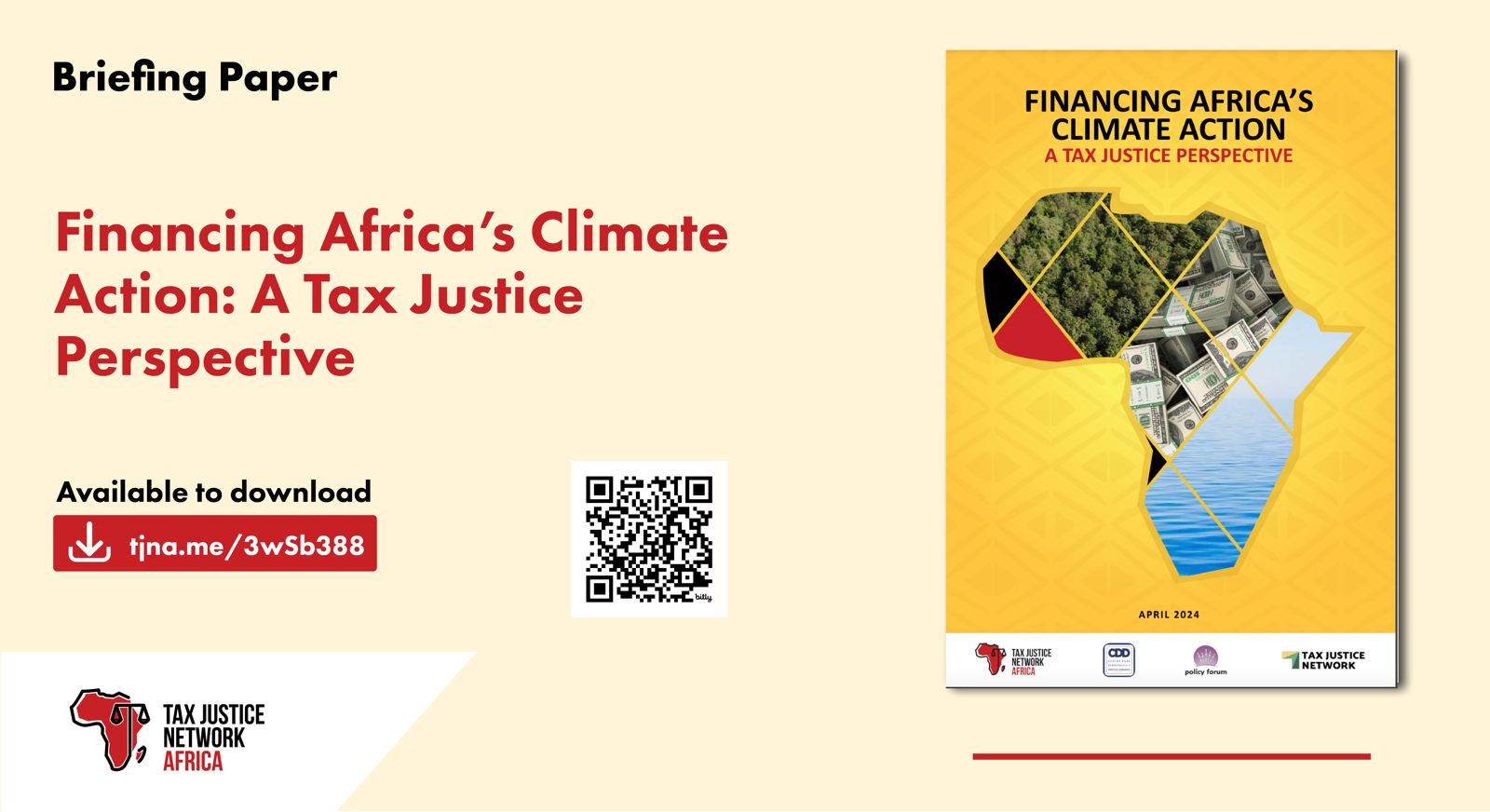Date

A new briefing paper released by TJNA and the Tax Justice Network has called on governments and tax justice actors to reform tax systems, both at the global and national levels, to finance climate action. The briefing paper titled, ‘Financing Africa’s Climate Action – A Tax Justice Perspective’ notes that tackling illicit financial flows and maximising domestic resource mobilisation for financing climate action in Africa can support the basis of the just energy transition on the continent.
Africa has contributed the least to global warming, yet millions face severe climate crisis impacts. African governments need more finance to combat these challenges – stopping floodwaters, feeding starving people, and increasing the resilience of the public sector.
At the same time, it is estimated that Africa loses between US$50 - US$89 billion each year due to illicit financial flows enabled by the richest countries in the world. Ironically, these primary enablers of tax abuse are also largely responsible for the climate crisis.
The briefing paper highlights that over a decade ago, rich nations pledged an annual US$100 billion for climate finance but consistently failed to fulfil this promise. Even if met, this amount falls short of addressing the world’s escalating needs. By 2030, the economic cost of loss and damage in developing countries could be as high as US$1.8 trillion.
It further notes that Africa needs at least $140 billion per year from 2020 to 2030 to manage the adverse effects of climate change effectively. However, in 2020, Africa received only three percent of global climate finance. Reforming the international tax system could help plug this gap. The State of Tax Justice 2023 reveals that the world loses US$480 billion per year to corporate tax abuse and wealth tax evasion – nearly fivefold the unmet climate finance commitment.
This stark discrepancy is why Africa is leading the charge for reforming the global tax system. Most of the world is advocating for a UN Framework Convention on International Tax Cooperation that will enable African countries to meaningfully participate and influence global tax rules on an equal footing.
In view of this, the briefing paper underscores the tax justice movement, working alongside climate, feminist, and economic justice movements, emphasising the need to raise domestic revenue and tackle illicit financial flows that can support the basis of the just energy transition in Africa.
In 2022, the TJNA sought to deepen the climate and tax justice discourse. This was done in collaboration with campaigners and policymakers across the continent, alongside partners at the Tax Justice Network, Mozambique’s Centro para Democracia e Direitos Humanos and Tanzania’s Policy Forum, and with support from the African Climate Foundation. Alongside this, many civic groups, researchers, and policymakers are making a concerted effort to explore the nexus between tax and the climate crisis.
The briefing paper draws insights from two roundtables and studies conducted in Mozambique and Tanzania. It proposes five principles of tax justice—known as the 5Rs of tax justice—as a useful framework to enhance collaboration between the tax and climate justice movements.
These principles of tax justice include raising revenue, redistributing wealth to create a more equal society, repricing through higher costs to discourage activities that infringe on the rights of others, improving representation to strengthen the social contract between citizens and their elected officials, and supporting reparations to address historical injustices and colonial legacies.
The briefing paper includes a set of questions for each principle, which provides a useful framework for enhancing collaboration between the tax and climate justice movements. Accompanying these principles is a series of probing questions designed to enhance collaboration between tax and climate justice movements.
Read and download the full briefing paper: https://tjna.me/4bPCa2p
Read and download the pocket guide: https://tjna.me/3yCZwK3
Related resources